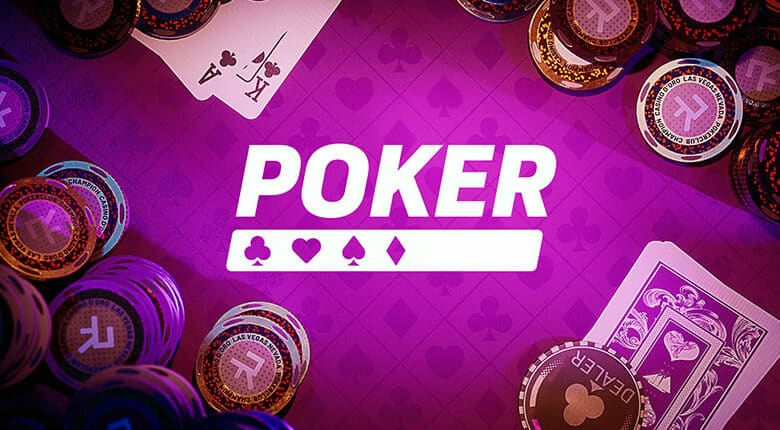Poker Game Theory : Strategies for Winning

Poker is a game of skill, strategy, and psychology. It is not just about the cards you are dealt, but also about how you play them and how you read your opponents. Winning at poker requires a deep understanding of game theory and the strategies that can help you gain an edge over your opponents. In this article, we will explore some of the key concepts of game theory and provide you with some proven strategies for winning at poker.
Understanding Poker Game Theory
What is Game Theory?
Game theory is the study of strategic decision-making, with a focus on how individuals or groups can make decisions that will maximize their outcomes in the face of uncertainty. In the context of poker, game theory helps us to understand how we can make optimal decisions in various situations to increase our chances of winning.
How does Game Theory apply to Poker?
In poker, each player has incomplete information about the cards held by their opponents. Therefore, it is important to use game theory principles to maximize your expected value in each hand. By understanding the probabilities and expected values of different actions, you can make optimal decisions that will maximize your winnings over the long run.
The Nash Equilibrium
The Nash Equilibrium is a key concept in game theory that refers to a stable state in which each player is making the best decision possible given the decisions of the other players. In the context of poker, the Nash Equilibrium helps us to understand the optimal strategies for different situations.
Essential Strategies for Winning at Poker
Starting Hand Selection
One of the most important decisions in poker is which starting hands to play. Generally speaking, you should only play premium hands such as AA, KK, QQ, AK, and AQ, and fold all other hands. However, the specific hands you should play will depend on a variety of factors, such as your position, the actions of your opponents, and the stage of the tournament.
Positional Awareness
Positional awareness is another crucial factor in winning at poker. The later your position at the table, the more information you have about the actions of your opponents, which can help you make better decisions. For example, if you are in a late position and your opponents have all checked, you can make a larger bet with a weak hand to try to steal the pot.
Bet Sizing
The size of your bets is also an important consideration in poker. Generally speaking, you should make larger bets when you have a strong hand and smaller bets when you have a weaker hand. However, you should also consider the size of the pot, the stack sizes of your opponents, and the stage of the tournament when deciding how much to bet.
Bluffing
Bluffing is a key strategy in poker that involves making a bet or raise with a weak hand in order to represent a stronger hand and force your opponents to fold. However, bluffing should be used sparingly and only in situations where it is likely to be successful. You should also be aware of the tendencies of your opponents and whether they are likely to call a bluff.
Reading Your Opponents
Reading your opponents is a critical skill in poker. By observing their behavior, betting patterns, and body language, you can gain insight into the strength of their hands and make better decisions. You should also be aware of your own behavior and try to avoid giving away any information about the strength of your own hand.
Pot Odds and Expected Value
Pot odds and expected value are two concepts that are essential for making optimal decisions in poker. Pot odds refer to the ratio of the size of the pot to the size of the bet you need to call. Expected value refers to the amount of money you can expect to win or lose on average in a particular situation. By considering both pot odds and expected value, you can make decisions that will maximize your long-term winnings.
Advanced Strategies for Winning at Poker
Range Analysis
Range analysis involves considering the entire range of hands that your opponent could hold, rather than just the specific hand they are representing. By considering your opponent’s entire range, you can make better decisions and avoid being exploited.
Hand Reading
Hand reading is the process of narrowing down your opponent’s range of hands based on their actions and behavior. By accurately reading your opponent’s hand, you can make better decisions and gain an edge over your opponents.
Metagame
Metagame refers to the broader strategies and dynamics that exist beyond the specific hand being played. By understanding the metagame, you can make better decisions and exploit weaknesses in your opponents’ strategies.
GTO (Game Theory Optimal) Strategy
GTO (Game Theory Optimal) strategy involves playing in a way that is mathematically optimal in any given situation. By playing a GTO strategy, you can ensure that you are always making the best possible decision, regardless of your opponent’s actions.
Exploitative Play
Exploitative play involves deviating from a GTO strategy in order to exploit the specific tendencies and weaknesses of your opponents. By using exploitative play, you can gain an edge over your opponents and increase your winnings.
Conclusion
Winning at poker requires a deep understanding of game theory and the strategies that can help you gain an edge over your opponents. By using essential strategies such as starting hand selection, positional awareness, bet sizing, bluffing, reading your opponents, and considering pot odds and expected value, you can increase your chances of success. Additionally, advanced strategies such as range analysis, hand reading, metagame, GTO strategy, and exploitative play can provide additional tools for success.




